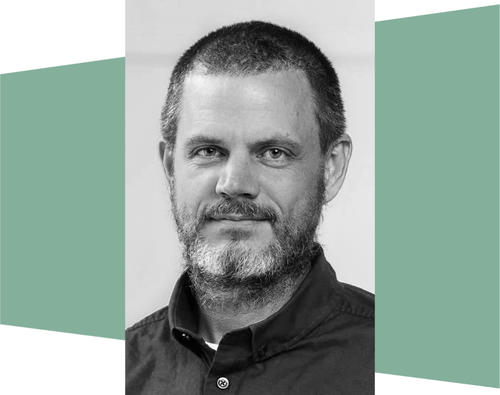Alexander R. Galloway
Alexander R. Galloway is Professor of Media, Culture, and Communication at New York University. He has also been a visiting scholar at the University of Pennsylvania and at Harvard University. His research interests comprise media arts, film, and video games as well as critical theory, aesthetics, and semiotics.
Among his publications are The Interface Effect (Polity, 2012), a standard reference for studying digital cultures, and, more recently, Uncomputable: Play and Politics in the Long Digital Age (Verso, 2021). Galloway obtained the Golden Nica of the Prix Ars Electronica and the Berlin Prize of the American Academy. In 2019, the John Simon Guggenheim Memorial Foundation honored Galloway’s research with a highly acclaimed fellowship.
Three Quick Questions:
In a few words, can you tell us about your current research interest?
This semester I'm returning to old questions, trying to develop better definitions of seemingly straightforward terms like "digital" and "analog." While the question of the digital leads in many different directions, at Cinepoetics I am focusing on the problem of "correlation." Data-driven digital images -- such as those created by machine learning models -- rely on methods borrowed from the empirical sciences, as opposed to symbolic logic or rational causality. This often entails the correlation of disparate data points. At the same time thinkers like François Laruelle and Quentin Meillassoux have described a post-Kantian scenario in which correlation is no longer valid. I'm trying to untangle this thicket, particularly with an eye toward digital images.
How do you relate the term poiesis to your work?
I consider the act of creation (poiesis) to be intimately connected to the process of critique. In recent years, I've tried to do both at the same time. This will typically involve making, building, or programming specific technical objects. Often the objects are discovered within the historical archive. I've started to call this "algorithmic re-enactment." Although that term is a bit clunky; perhaps there's an a better word to describe it.
Which film or other audiovisual format has resonated with you lately and why?
That's tough, but I might focus on two late works by Harun Farocki that deal with computer games: Serious Games and Parallel. Farocki made these two series of pieces from 2009 to 2014. While in Berlin I'd like to get further acquainted with Farocki's turn to games prior to his death.


